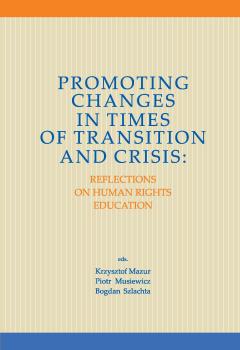Significance of Auschwitz for the Contemporary Germans .......... 13
Streszczenie
“Auschwitz” has become in Germany the quintessential symbol for the crimes of na-tional socialism and the involvement of so many Germans in them. But “Auschwitz” is also a part of the foundation on which the Federal Republic of Germany as a democratic state under the rule of law is built: Human dignity is inviolable (Art. 1 of the Constitution). On the annual anniversary of the liberation of the Auschwitz-Birkenau extermination camp, the Federal Parliament remembers the victims of national socialism in a solemn session. A highly alert press also keeps the memory of those crimes present in the public mind. The coming generation is intensively involved, through the school curriculum and television, in the discussion of antisemitism and the essential conditions in which human rights are secure and asserted.





